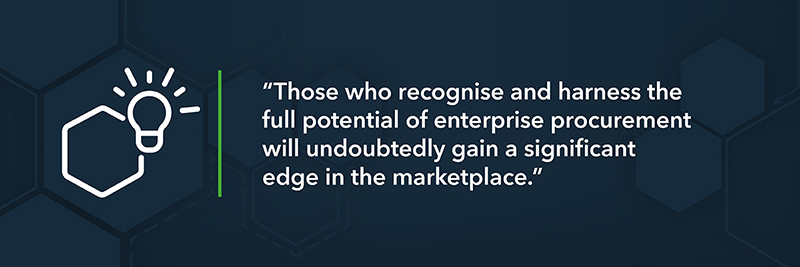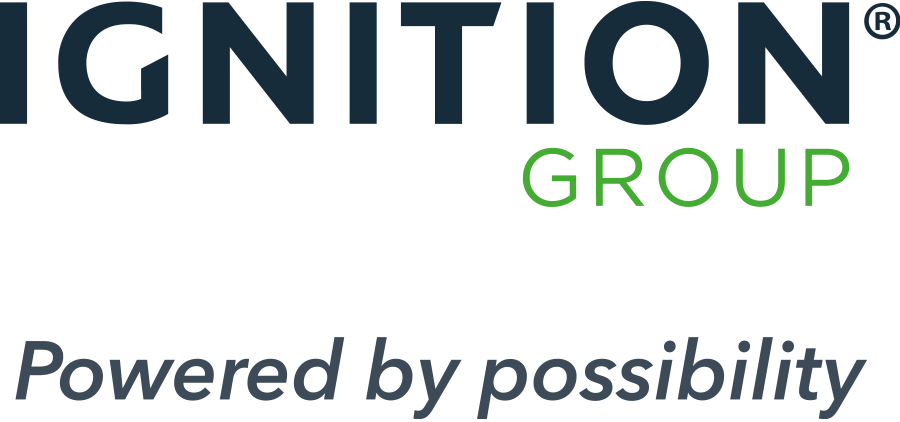
In the dynamic landscape of modern business, success hinges on the ability to adapt, innovate and streamline operations. One often overlooked but crucial aspect of this success is enterprise procurement. Far more than a simple purchasing function, enterprise procurement is a strategic asset that can revolutionise the way businesses operate, driving operational efficiency, commercial efficiencies and sustainable growth.
Enterprise procurement involves strategic sourcing, a process that goes beyond mere transactional purchasing to establish long-term, mutually beneficial relationships with suppliers. By strategically selecting and partnering with suppliers who align with the organisation’s goals and values, businesses gain a competitive advantage. This approach fosters innovation, reduces supply chain risks and ensures a reliable flow of goods and services.
One of the primary benefits of enterprise procurement is the ability to negotiate favourable terms and conditions with suppliers. By leveraging the purchasing power of the entire organisation, procurement professionals can secure volume discounts, favourable payment terms, and other commercial efficiencies. Additionally, collaboration with suppliers can lead to innovative spend solutions, driving down expenses while maintaining or improving product and service quality.
In an era marked by global supply chain complexities, enterprise procurement plays a critical role in risk management. Procurement teams assess and mitigate risks related to geopolitical events, economic fluctuations and other external factors that could impact the supply chain. Moreover, they ensure that all procurement activities comply with relevant regulations and ethical standards, safeguarding the company’s reputation and minimising legal risks. A recent example of this was the backlog of imports into our harbours, where through discussions and agreements with our long-standing suppliers we were able to continue internal supply and mitigate the risk for business-critical supply shortage.
The advent of advanced technologies has transformed the procurement landscape. Enterprise procurement leverages cutting-edge tools such as e-procurement platforms and data analytics to enhance efficiency and decision-making. Automation streamlines routine tasks, allowing procurement professionals to focus on strategic initiatives, supplier relationship management and value-added activities. We are in the process of automating procurement purchases, and this allows us as a business to gather data for analysis on spend trends, budget controls and forecasting.
Enterprise procurement is not merely a department focused on buying goods and services or the infamous ‘cost cutting’; it is a strategic powerhouse that can propel a business to new heights. By embracing strategic sourcing, negotiating efficiently, managing risks, integrating technology and adopting sustainable practices, businesses can transform their procurement function into a key driver of success. In today’s competitive landscape, those who recognise and harness the full potential of enterprise procurement will undoubtedly gain a significant edge in the marketplace.
Ignition has driven enterprise procurement across the business entities, which has allowed us to improve business practices. The approach has been agile, putting processes in place using a Kaizen (continuous improvement) approach.
At Ignition, procurement has reduced the onboarding process cycle of suppliers by 70%, which has allowed the business to move faster in achieving business objectives. Streamlining the process of onboarding suppliers contributes to the enhancement of our competitive edge, allowing businesses within our group to move faster and more effectively.
One of the largest consumable costs, stationery, printing and paper usage, which was a substantial annual cost to the business, has been reduced by 86%, generating a net benefit of close to R1m for the financial year. We have also been able to redirect the use of people skills away from manual processes to more technical skills, fostering an improved culture of innovation. The opportunities here for upskilling and employee engagement should not be underestimated – growing our staff’s skill set enables our economy as a business as well as within our broader communities.
Smart asset management within the business has allowed us to extend the lifecycle of assets. By considering more than price, we factor in warranties, supplier response and restore times, and quality of products, thereby optimising resource utilisation and reducing overall operational costs. An example is recovered assets that were not returned to stores (specifically laptops), which were well within their warranty period. This exercise has reduced new purchases by R1.1m in the last FY.
We are excited as a team to continue to drive strategic procurement and asset management across the Ignition Group, enabling smarter choices as well operational and commercial efficiencies.
Callie Baney is Head of Project Management and Procurement at Ignition Group.


